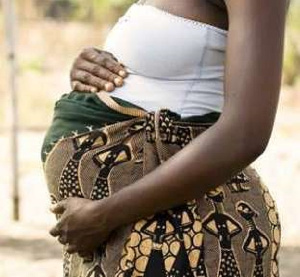The District Health Information Management System (DHIMS) of Ghana Health has revealed that about 6,533 teenage pregnancy have been recorded in the Upper East Region.
According to statistics, teenage pregnancy cases among girls aged 10 to 14 in the region has increased from 103 in 2019 to 142 in 2020, representing a 38 per cent increase.
A press statement by the Sexual and Reproductive Health and Rights (SRHR) Network in the Upper East Region noted that poverty, difficulties in accessing Adolescent Reproductive Health information and Youth Friendly Health services and effects of the Covid-19 pandemic have fueled high rates of unintended teenage pregnancies and child marriages in the Region.
According to the organisation, the majority of the reported teenage pregnancy incidences occurred in poor and rural districts of the region, particularly in the Bawku-West, Bongo and Talensi Districts, which recorded the highest incidents in 2020.
It further indicated that the risks of maternal deaths are higher for young adolescents, with girls aged between 15 years or younger facing higher risks than older adolescents.
"The need for all hands on deck to tackle the underlying causes of high teenage pregnancies and motherhood, including stigma, poverty, social norms around expected behaviours and peer pressure to engage in sexual relations at an early age resulting in unintended pregnancies."
With the alarming increase in teenage pregnancy, SRHR called on government and other stakeholders to initiate expedient measures to curb the increasing number of teenage pregnancy.
"SRHR is urging government (Ghana Education Service, Ghana Health Service and National Youth Authority) and traditional leaders to take urgent steps to make sure that adolescent girls receive the information and support they need to protect themselves from unintended pregnancy which most of the times lead to forced marriages.
"It is this worrying trend that the SRHR Network – Upper East Region calls on all stakeholders to as a matter of urgency to initiate open and frank discussions on adopting and implementing a culturally sensitive and age-appropriate Reproductive Health Education (RHE) in schools and communities in the Upper East Region and Ghana as a whole," it added.
Latest Stories
-
Communications Ministry restructures workforce to align with governance reset
2 hours -
Djibouti’s Foreign Minister Mahmoud Ali Youssouf elected AU Commission chair
3 hours -
Barker-Vormawor, Ama Governor, shouldn’t have been prosecuted – John Darko
3 hours -
Bellingham sent off as Real Madrid held by Osasuna
5 hours -
Ten-man Ipswich claim battling point at Aston Villa
5 hours -
Marmoush hits quickfire treble as Man City thrash Newcastle
5 hours -
Walewale curfew ‘poorly made and politically motivated’ – MP
6 hours -
Samuel Kofi Ahiave hands over to Kow Eduakwa Sam as Ag. CEO of Bui Power Authority
8 hours -
Dec. 7 termination: We’ll strike if newly recruited nurses are affected – GRNMA warns
8 hours -
Sam George terminates Osafo-Maafo’s appointment as NCA Director
8 hours -
Interior Ministry imposes 6pm curfew on Walewale, bans carrying of ammunition
8 hours -
Mahama calls for stronger US support to tackle regional security threats
8 hours -
Ghana will leverage over $130bn global chocolate market to create jobs – Trade Minister
8 hours -
Unveiling of the official logo for Mfantsipim’s 150th Anniversary celebration
8 hours -
Merino’s late double keeps Arsenal title pursuit on track at Leicester
8 hours

